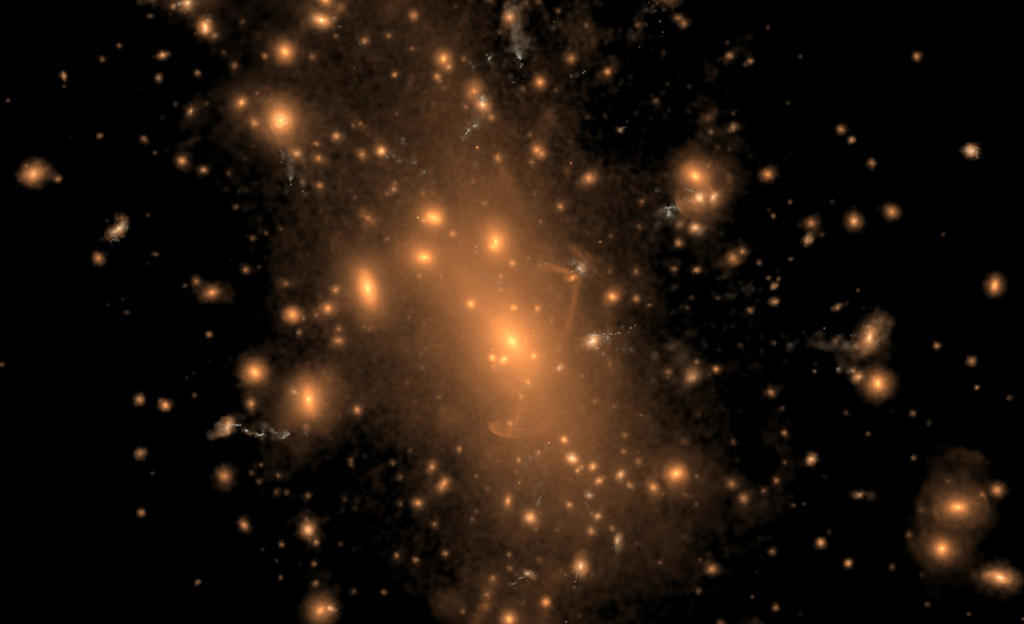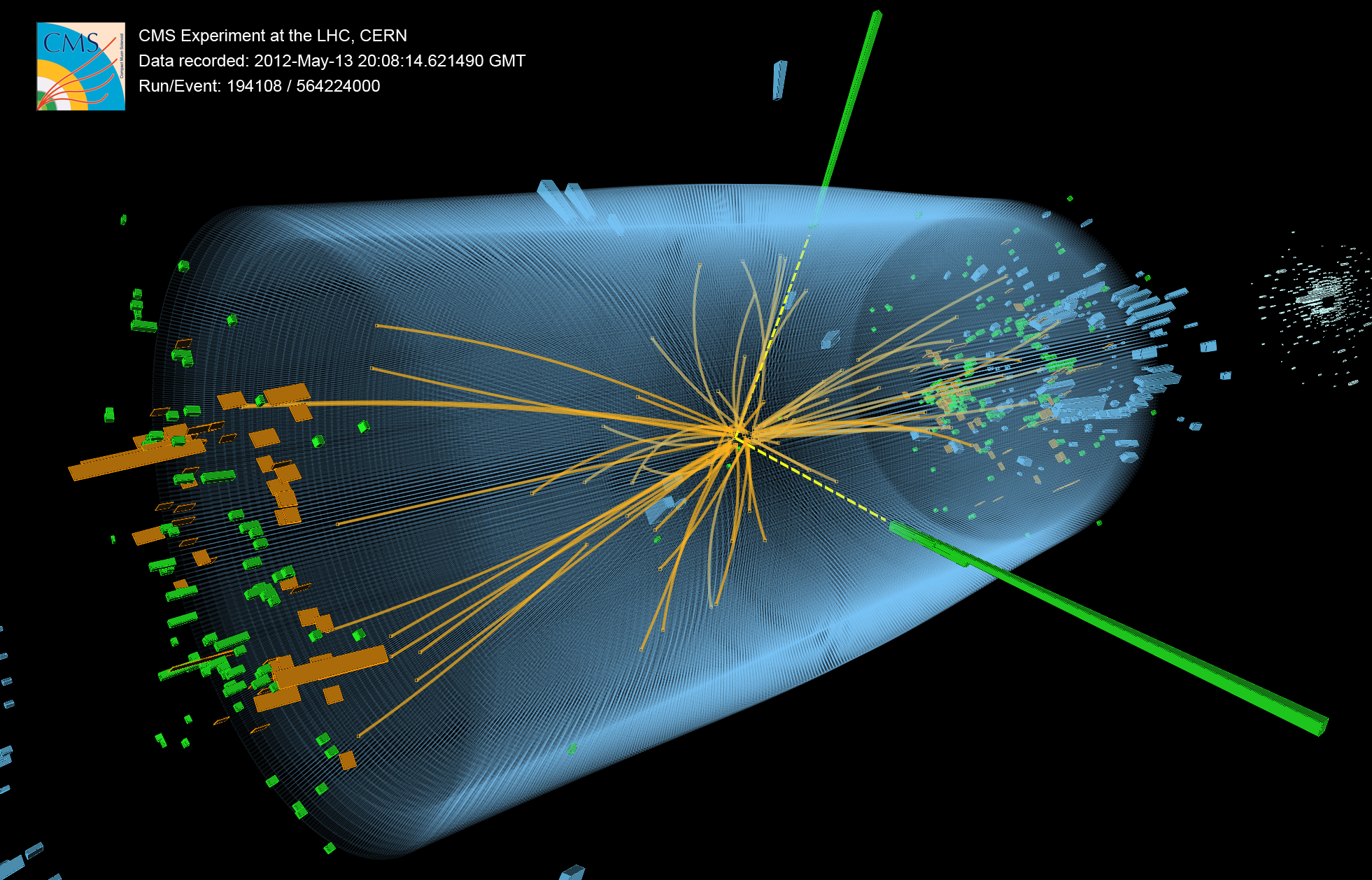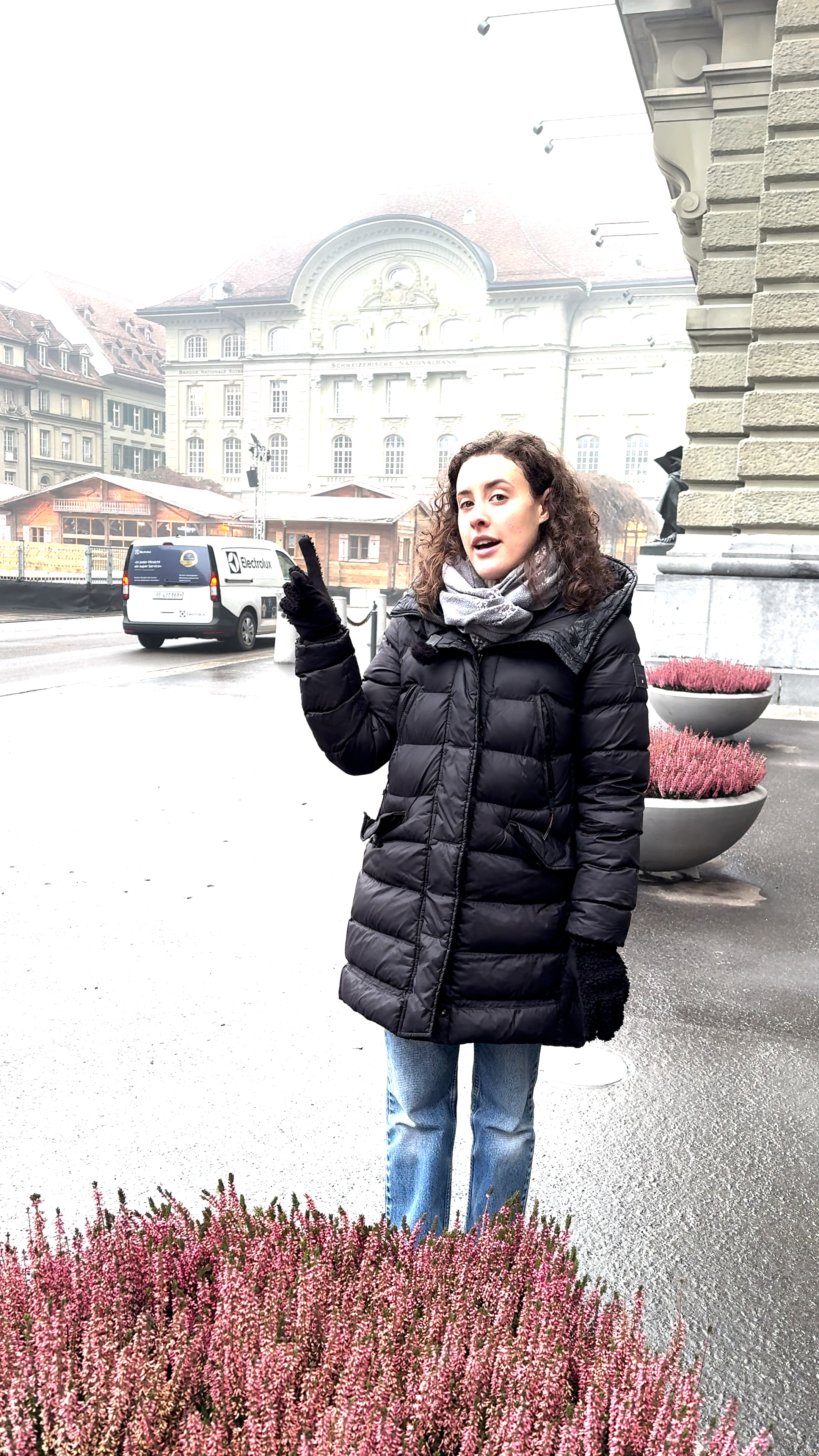
CERN and Google offer Big Bang on smartphone

A mobile phone app developed by CERN in cooperation with Google invites the public to travel through the history of space, time and matter within minutes.
The free, interactive “Big Bang AR App” describing the creation of our solar system was launched on Wednesday.
“With this app, we hope to reach new audiences and share with everyone the story of the origin of our universe in an inspiring way,” says Charlotte Warakaulle, Director of International Relations at the Swiss-based European Organization for Nuclear Research (CERN).
The app, which is free and available for downloadExternal link, uses “augmented or mixed reality to create an immersive adventure to our origin”. The voiceover is by Oscar-winning actress Tilda Swinton who “guides the user from the swirling soup of quark–gluon plasma, formation of protons and neutrons, evolution of atoms and molecules, birth of stars and planets, to the universe as we know it today”, according to CERN.
The “Big Bang AR App” was created as part of a Google Arts and CultureExternal link project presented Wednesday in Washington. “Once Upon a Try”External link is a big interactive exhibition featuring virtual tours of human inventions and discoveries.
For example, you can dive into the depths of CERN, visit the International Space Station (ISS), consult Albert Einstein’s notes or follow the discovery of the Higgs boson or the invention of the Internet, whose 30th anniversary will be celebrated on March 12 at CERN.

More
Cern detects new ‘Higgs-like’ particle

In compliance with the JTI standards
More: SWI swissinfo.ch certified by the Journalism Trust Initiative






























You can find an overview of ongoing debates with our journalists here . Please join us!
If you want to start a conversation about a topic raised in this article or want to report factual errors, email us at english@swissinfo.ch.